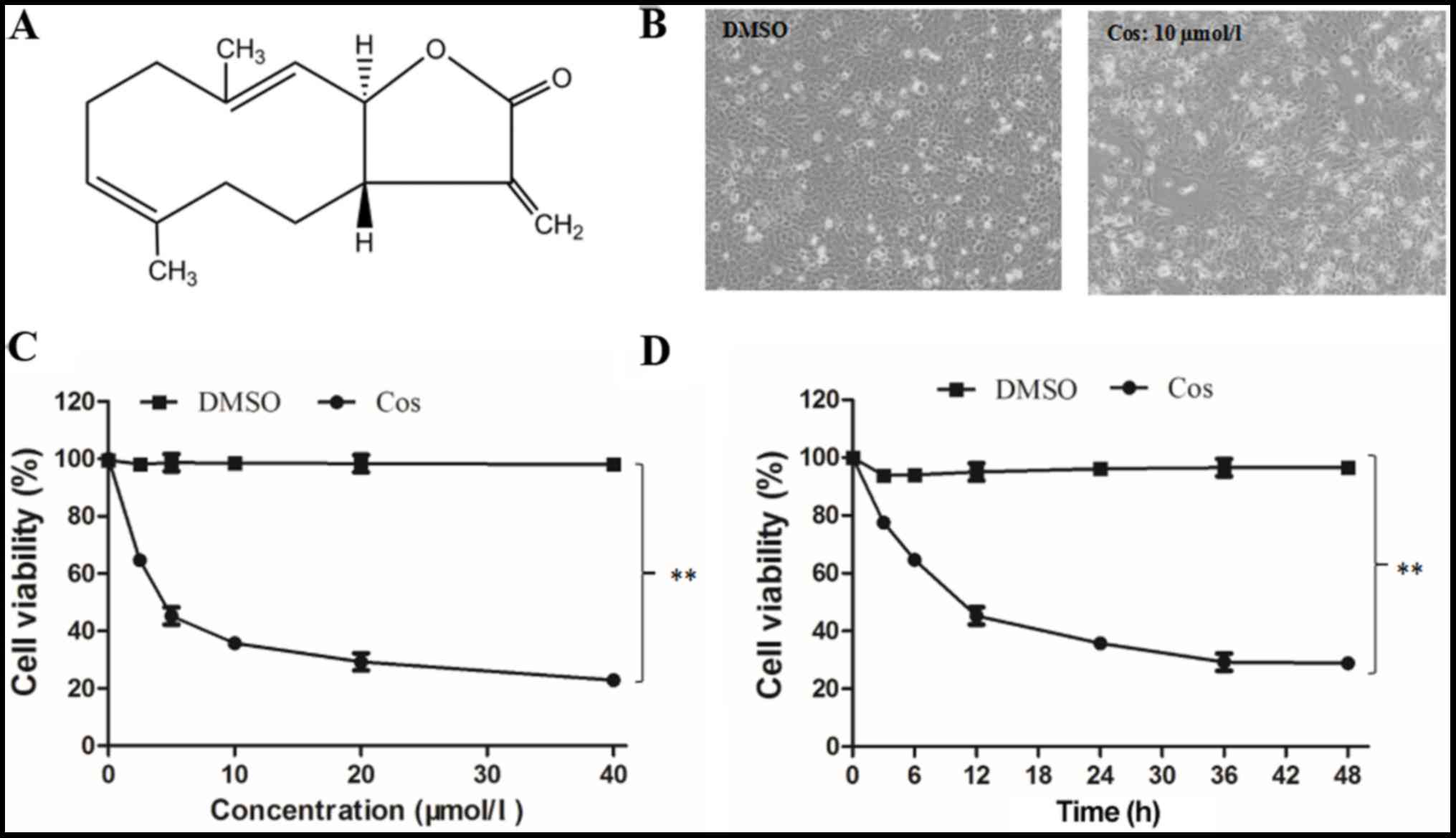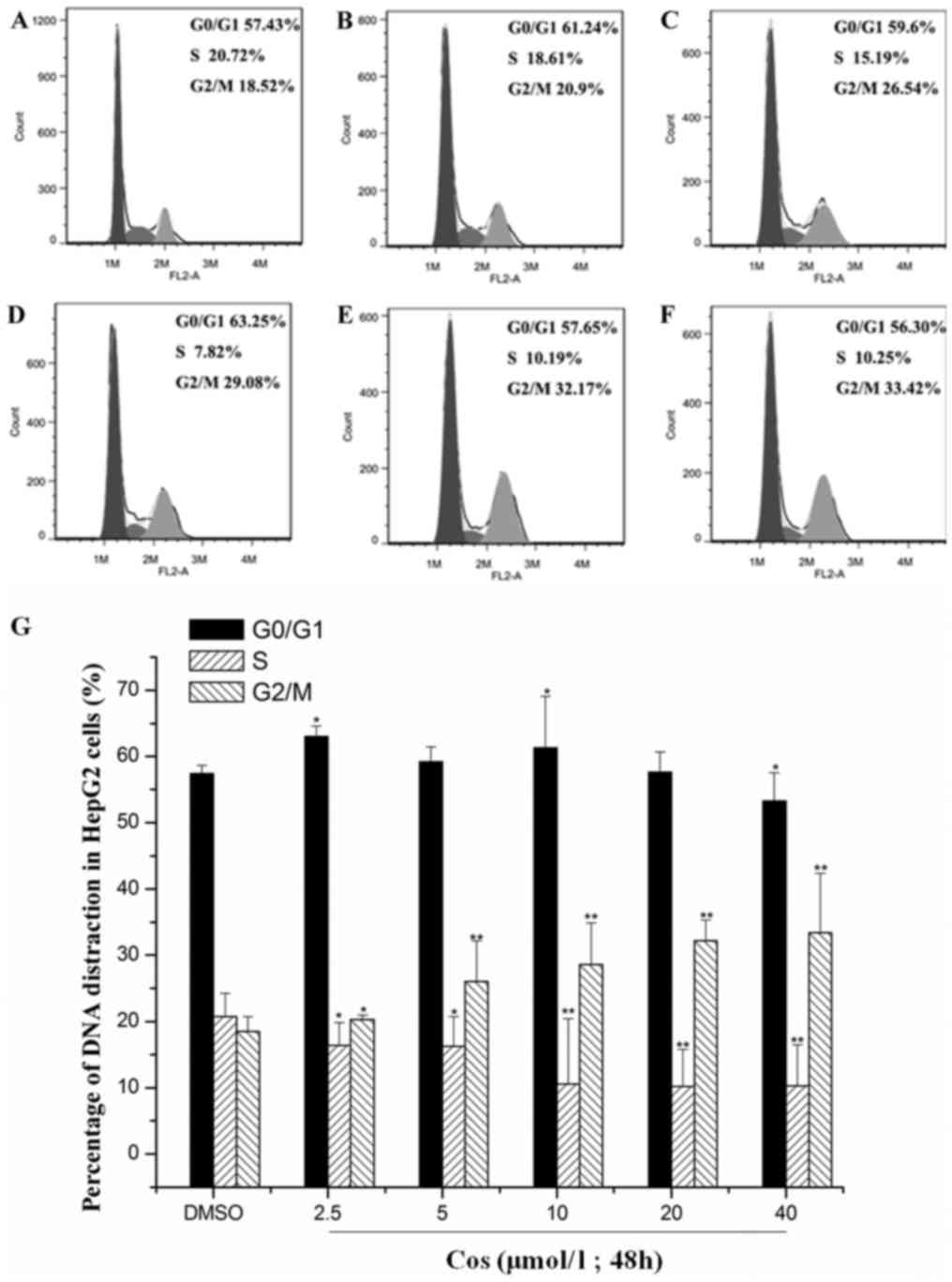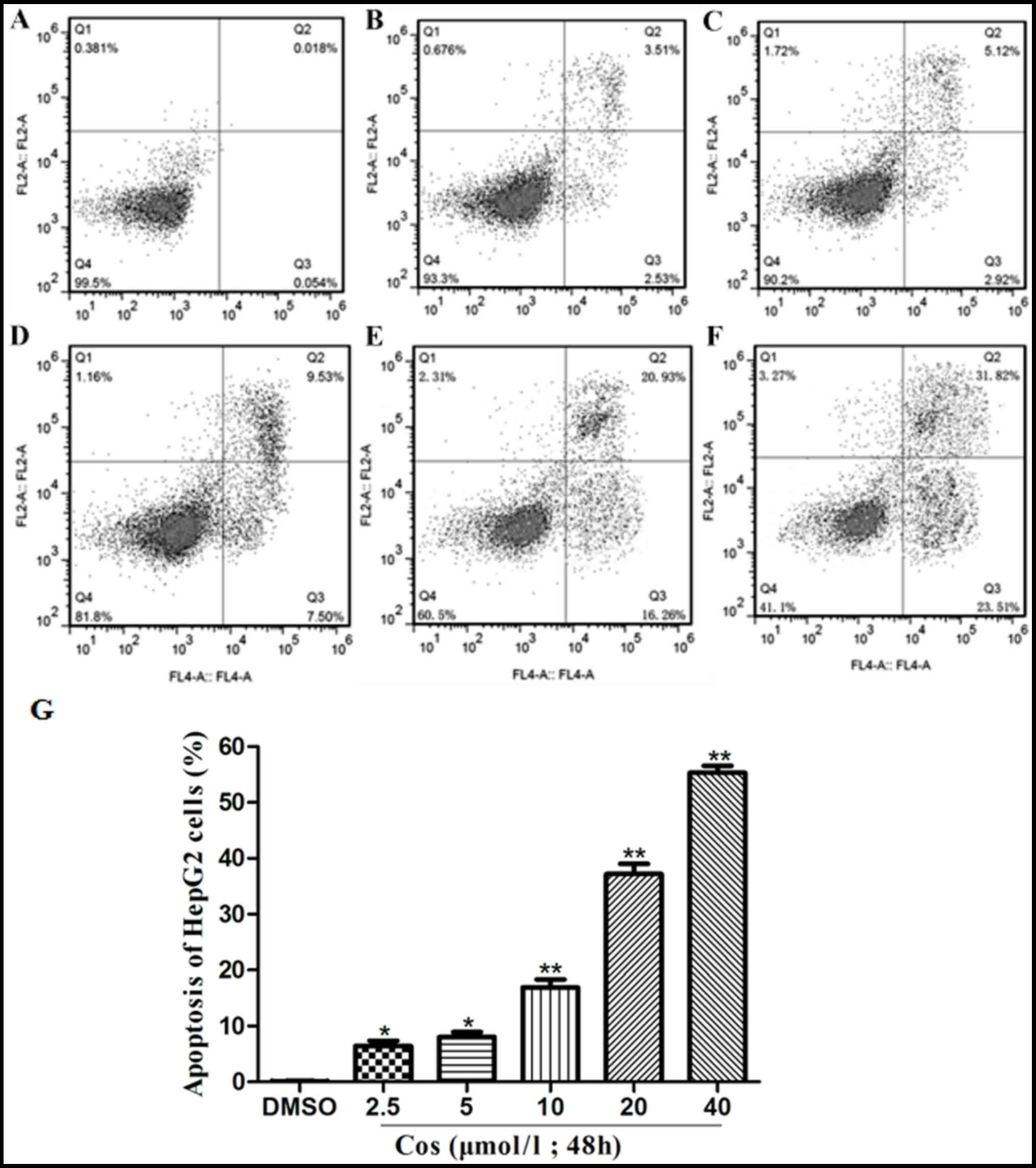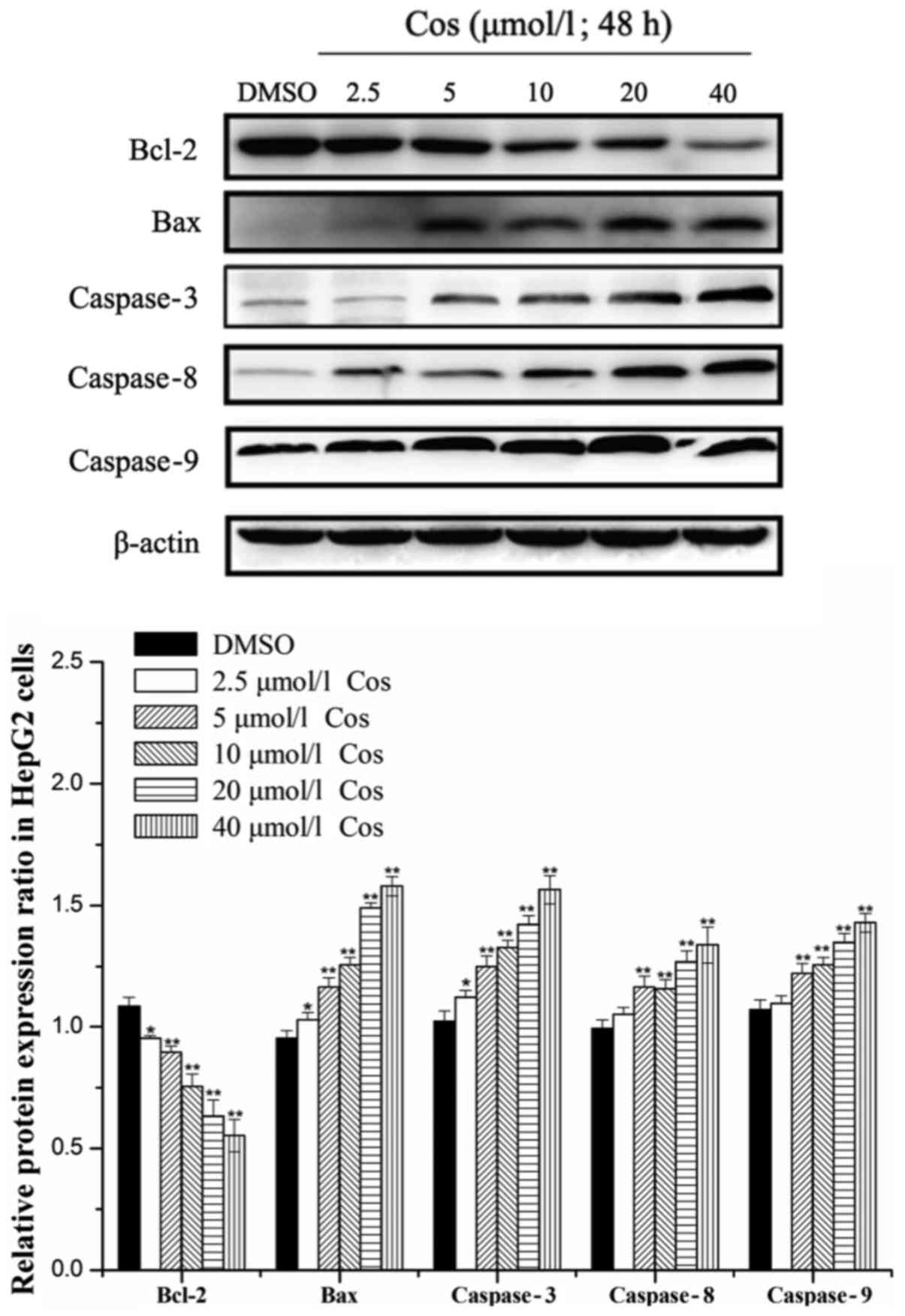|
1
|
Firtina Karagonlar Z, Koc D, Iscan E,
Erdal E and Atabey N: Elevated hepatocyte growth factor expression
as an autocrine c-Met activation mechanism in acquired resistance
to sorafenib in hepatocellular carcinoma cells. Cancer Sci.
107:407–416. 2016. View Article : Google Scholar : PubMed/NCBI
|
|
2
|
Bosch FX, Ribes J, Díaz M and Cléries R:
Primary liver cancer: Worldwide incidence and trends.
Gastroenterology. 127 (5 Suppl 1):S5–S16. 2004. View Article : Google Scholar : PubMed/NCBI
|
|
3
|
Fu J and Wang HY: Precision diagnosis and
treatment of liver cancer in China. Cancer Lett. 412:283–288. 2018.
View Article : Google Scholar : PubMed/NCBI
|
|
4
|
Laursen L: A preventable cancer. Nature.
516:S2–S3. 2014. View
Article : Google Scholar : PubMed/NCBI
|
|
5
|
Jarnagin WR: Management of small
hepatocellular carcinoma: A review of transplantation, resection,
and ablation. Ann Surg Oncol. 17:1226–1233. 2010. View Article : Google Scholar : PubMed/NCBI
|
|
6
|
Bitzer M, Horger M, Giannini EG, Ganten
TM, Wörns MA, Siveke JT, Dollinger MM, Gerken G, Scheulen ME, Wege
H, et al: Resminostat plus sorafenib as second-line therapy of
advanced hepatocellular carcinoma-The SHELTER study. J Hepatol.
65:280–286. 2016. View Article : Google Scholar : PubMed/NCBI
|
|
7
|
Kojiro M: Histopathology of liver cancers.
Best Pract Res Clin Gastroenterol. 19:39–62. 2005. View Article : Google Scholar : PubMed/NCBI
|
|
8
|
Lin WF, Lu JY, Cheng BB and Ling CQ:
Progress in research on the effects of traditional Chinese medicine
on the tumor microenvironment. J Integr Med. 15:282–287. 2017.
View Article : Google Scholar : PubMed/NCBI
|
|
9
|
Chinese Pharmacopoeia Commission:
Pharmacopoeia of the People's Republic of China. 1. China Medical
Science Press; Shanghai: pp. 35–36. 2015
|
|
10
|
Butturini E, Di Paola R, Suzuki H,
Paterniti I, Ahmad A, Mariotto S and Cuzzocrea S: Costunolide and
dehydrocostuslactone, two natural sesquiterpene lactones,
ameliorate the inflammatory process associated to experimental
pleurisy in mice. Eur J Pharmacol. 730:107–115. 2014. View Article : Google Scholar : PubMed/NCBI
|
|
11
|
Chen HC, Chou CK, Lee SD, Wang JC and Yeh
SF: Active compounds from Saussurea lappa Clarks that suppress
hepatitis B virus surface antigen gene expression in human hepatoma
cells. Antiviral Res. 27:99–109. 1995. View Article : Google Scholar : PubMed/NCBI
|
|
12
|
Wang Y, Zhang X, Zhao L, Shi M, Wei Z,
Yang Z, Guo C and Fu Y: Costunolide protects
lipopolysaccharide/d-galactosamine-induced acute liver injury in
mice by inhibiting NF-κB signaling pathway. J Surg Res. 220:40–45.
2017. View Article : Google Scholar : PubMed/NCBI
|
|
13
|
Zheng H, Chen Y, Zhang J, Wang L, Jin Z,
Huang H, Man S and Gao W: Evaluation of protective effects of
costunolide and dehydrocostuslactone on ethanol-induced gastric
ulcer in mice based on multi-pathway regulation. Chem Biol
Interact. 250:68–77. 2016. View Article : Google Scholar : PubMed/NCBI
|
|
14
|
Srivastava SK, Abraham A, Bhat B, Jaggi M,
Singh AT, Sanna VK, Singh G, Agarwal SK, Mukherjee R and Burman AC:
Synthesis of 13-amino Costunolide derivatives as anticancer agents.
Bioorg Med Chem Lett. 16:4195–4199. 2006. View Article : Google Scholar : PubMed/NCBI
|
|
15
|
Zhang C, Lu T, Wang GD, Ma C and Zhou YF:
Costunolide, an active sesquiterpene lactone, induced apoptosis via
ROS-mediated ER stress and JNK pathway in human U2OS cells. Biomed
Pharmacother. 80:253–259. 2016. View Article : Google Scholar : PubMed/NCBI
|
|
16
|
Wang GM, Shi DD, Peng ZX, Lu YF, Gu X,
Wang Y and Yan C: Study on mechanism of costunolide-induced
apoptosis in breast cancer MCF-7 cells. Chin J Anal Chem.
43:682–688. 2015.
|
|
17
|
Rasul A, Bao R, Malhi M, Zhao B, Tsuji I,
Li J and Li X: Induction of apoptosis by costunolide in bladder
cancer cells is mediated through ROS generation and mitochondrial
dysfunction. Molecules. 18:1418–1433. 2013. View Article : Google Scholar : PubMed/NCBI
|
|
18
|
Oh GS, Pae HO, Chung HT, Kwon JW, Lee JH,
Kwon TO, Kwon SY, Chon BH and Yun YG: Dehydrocostus lactone
enhances tumor necrosis factor-alpha-induced apoptosis of human
leukemia HL-60 cells. Immunopharmacol Immunotoxicol. 26:163–175.
2004. View Article : Google Scholar : PubMed/NCBI
|
|
19
|
Semsarha F, Taheri MA and Najafi MH:
Interfering with consciousness at cellular (HeLa cell) and
molecular (microtubule protein) levels. Presented at The Science of
Consciousness TSC 2016. Abstract. 299:2016.
|
|
20
|
Wang Z, Zhao Z and Gong XG: Costunolide
induces lung adenocarcinoma cell line A549 cells apoptosis through
ROS (reactive oxygen species)-mediated endoplasmic reticulum
stress. Cell Biol Int. 40:289–297. 2016. View Article : Google Scholar : PubMed/NCBI
|
|
21
|
Cao K, Qian W, Xu Y, Zhou Z, Zhang Q and
Zhang XF: A new sesquiterpenoid from Saussurea lappa roots. Nat
Prod Res. 30:2160–2163. 2016. View Article : Google Scholar : PubMed/NCBI
|
|
22
|
Utsugi T, Schroit AJ, Connor J, Bucana CD
and Fidler IJ: Elevated expression of phosphatidylserine in the
outer membrane leaflet of human tumor cells and recognition by
activated human blood monocytes. Cancer Res. 51:3062–3066.
1991.PubMed/NCBI
|
|
23
|
Adams JM and Cory S: The Bcl-2 apoptotic
switch in cancer development and therapy. Oncogene. 26:1324–1337.
2007. View Article : Google Scholar : PubMed/NCBI
|
|
24
|
Riedl SJ and Shi Y: Molecular mechanisms
of caspase regulation during apoptosis. Nat Rev Mol Cell Biol.
5:897–907. 2004. View
Article : Google Scholar : PubMed/NCBI
|
|
25
|
Alves JCF: A review on the chemistry of
eremanthine: A sesquiterpene lactone with relevant biological
activity. Org Chem Int. 2011:Article ID 170196. 2011. View Article : Google Scholar
|
|
26
|
Ramasamy K and Agarwal R: Multitargeted
therapy of cancer by silymarin. Cancer Lett. 269:352–362. 2008.
View Article : Google Scholar : PubMed/NCBI
|
|
27
|
López-Sáez JF, de la Torre C, Pincheira J
and Giménez-Martín G: Cell proliferation and cancer. Histol
Histopathol. 13:1197–1214. 1998.PubMed/NCBI
|
|
28
|
Lin X, Peng Z, Fu X, Liu C, Xu Y, Ji W,
Fan J, Chen L, Fang L, Huang Y and Su C: Volatile oil from
Saussurea lappa exerts antitumor efficacy by inhibiting epithelial
growth factor receptor tyrosine kinase-mediated signaling pathway
in hepatocellular carcinoma. Oncotarget. 7:79761–79773. 2016.
View Article : Google Scholar : PubMed/NCBI
|
|
29
|
Rasul A, Yu B, Yang LF, Arshad M, Khan M,
Ma T and Yang H: Costunolide, a sesquiterpene lactone induces G2/M
phase arrest and mitochondria-mediated apoptosis in human gastric
adenocarcinoma SGC-7901 cells. J Med Plants Res. 6:1191–1200.
2012.
|
|
30
|
Lau A, Wang Y and Chiu JF: Reactive oxygen
species: Current knowledge and applications in cancer research and
therapeutic. J Cell Biochem. 104:657–667. 2008. View Article : Google Scholar : PubMed/NCBI
|
|
31
|
Hengartner MO: The biochemistry of
apoptosis. Nature. 407:770–776. 2000. View
Article : Google Scholar : PubMed/NCBI
|
|
32
|
Lang L, Zhu S, Zhang H, Yang P, Fan H, Li
S, Liao Z, Lan X, Cui H and Chen M: A natural phenylpropionate
derivative from Mirabilis himalaica inhibits cell proliferation and
induces apoptosis in HepG2 cells. Bioorg Med Chem Lett.
24:5484–5488. 2014. View Article : Google Scholar : PubMed/NCBI
|
|
33
|
Gross A: Bcl-2 family proteins as
regulators of mitochondria metabolism. Biochim Biophys Acta.
1857:1243–1246. 2016. View Article : Google Scholar : PubMed/NCBI
|
|
34
|
Elmore S: Apoptosis: A review of
programmed cell death. Toxicol Pathol. 35:495–516. 2007. View Article : Google Scholar : PubMed/NCBI
|
|
35
|
Ko HM, Joo SH, Jo JH, Park WS, Jung WY,
Shin JH and Ahn HJ: Liver-wrapping, nitric oxide-releasing
nanofiber downregulates cleaved caspase-3 and bax expression on rat
hepatic ischemia-reperfusion injury. Transplant Proc. 49:1170–1174.
2017. View Article : Google Scholar : PubMed/NCBI
|
|
36
|
Wurstle ML, Laussmann MA and Rehm M: The
central role of initiator caspase-9 in apoptosis signal
transduction and the regulation of its activation and activity on
the apoptosome. Exp Cell Res. 318:1213–1220. 2012. View Article : Google Scholar : PubMed/NCBI
|
|
37
|
Salvesen GS: Caspase 8: Igniting the death
machine. Structure. 7:R225–R229. 1999. View Article : Google Scholar : PubMed/NCBI
|
|
38
|
Choi YK, Seo HS, Choi HS, Choi HS, Kim SR,
Shin YC and Ko SG: Induction of Fas-mediated extrinsic apoptosis,
p21WAF1-related G2/M cell cycle arrest and ROS generation by
costunolide in estrogen receptor-negative breast cancer cells,
MDA-MB-231. Mol Cell Biochem. 363:119–128. 2012. View Article : Google Scholar : PubMed/NCBI
|
|
39
|
Yi YI, Kim JH, Lee KT and Choi JH:
Costunolide induces apoptosis in platinum-resistant human ovarian
cancer cells by generating reactive oxygen species. Gynecol Oncol.
123:588–596. 2011. View Article : Google Scholar : PubMed/NCBI
|
|
40
|
Hua PY, Sun M, Zhang G, Zhang Y, Song G,
Liu Z, Li X, Zhang X and Li B: Costunolide induces apoptosis
through generation of ROS and activation of P53 in human esophageal
cancer Eca-109 cells. J Biochem Mol Toxicol. 30:462–469. 2016.
View Article : Google Scholar : PubMed/NCBI
|


















